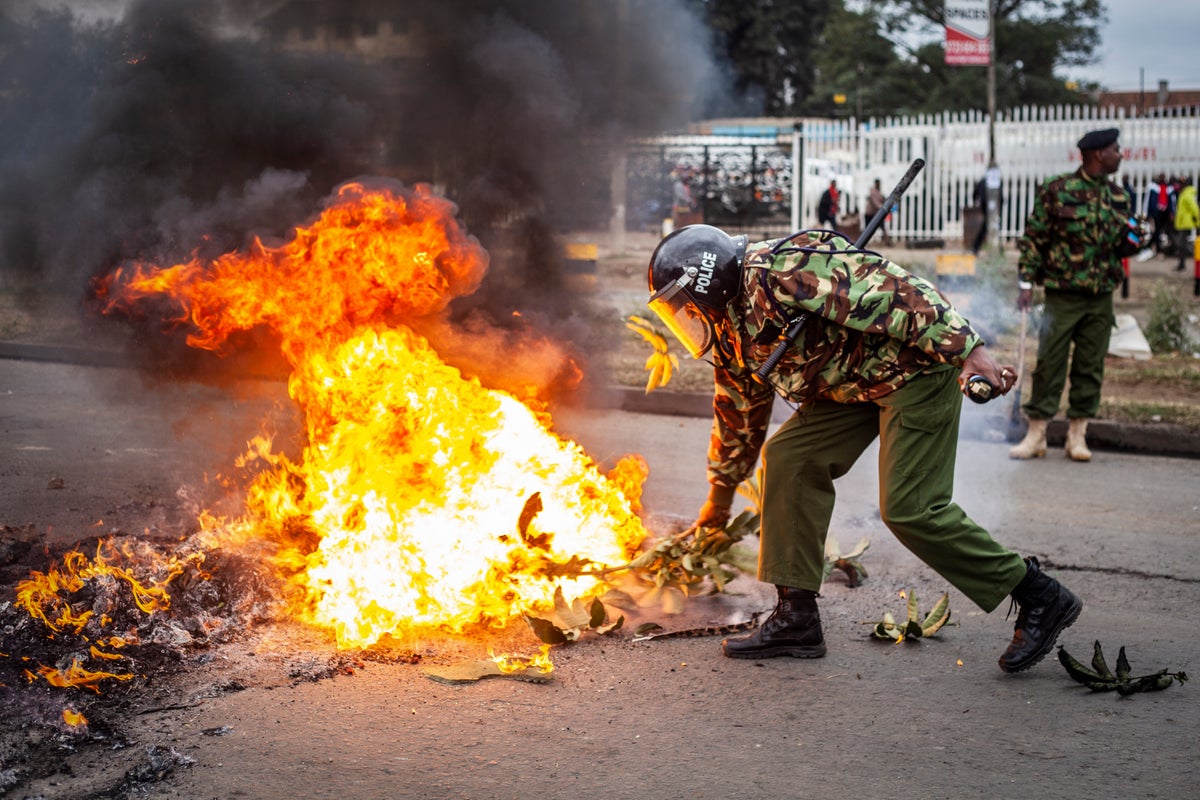
Anti-government demonstrators in Kenya lit bonfires and barricaded major roads in the capital Friday as part of nationwide protests against the government’s plans to increase taxes. Police detained more than 20 protesters.
Hundreds of protesters turned up in Nairobi, as well as in the coastal city of Mombasa and the lakeside city of Kisumu, where the opposition enjoys huge support. Some businesses closed their doors. Police dispersed the protesters with tear gas canisters.
Protester Emmanuel Wafula in Nairobi said he wanted President William Ruto to lower the cost of living, not raise it through his administration's newly passed tax package.
“He wants to tax the little money we have in our pockets. What will we eat?” Wafula said. “He is increasing taxes to people who have nothing. If one has money, it is okay to be taxed. We have nothing!”
Nairobi police commander Adamson Bungei told The Associated Press that “more than 20 people" had been arrested by midday, but he did not say what charges they would face.
The government's tax package increased the value added tax on petroleum from 8% to 16%, boosted a business turnover tax from 1% to 3% and created a new 1.5% percent housing tax for salaried workers.
Opposition leader Raila Odinga has called on followers not to pay the taxes, and for “civil disobedience” to protest them, including more nationwide demonstrations planned for next Wednesday.
The implementation of some of the new tax provisions has been suspended by a court pending a case filed by an opposition senator challenging their legality. The government has, however, implemented the increased fuel tax.
At a rally Friday in Nairobi, Odinga launched a petition drive to get 10 million Kenyans to sign an impeachment motion against President Ruto. However, the Kenyan constitution grants impeachment powers only to the national assembly, which the ruling party currently controls.
The opposition in March held a series of weekly protests that turned deadly and caused damage to property and businesses. President Ruto then invited the opposition into a dialogue, and the opposition called off its protests. It later accused the government of dishonesty during the talks and vowed to resume demonstrations.
The Kenyan constitution guarantees the right to peaceful demonstrations, but police sometimes deny permits to opposition groups because of a past history of violence and vandalism.







